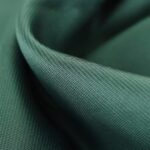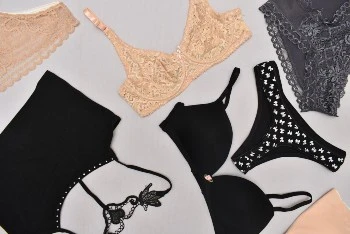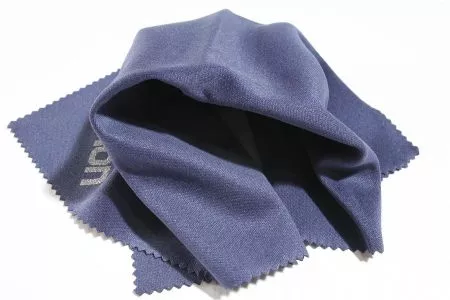The type of clothes we wear is to a great extent determined by the weather. For example, you cannot wear a heavy jacket on a hot day. Likewise, you cannot wear light clothes during the colder months since you need clothes to keep you warm. As summer approaches, you might ask whether nylon is suitable for summer.
100% nylon is not good for summer. However, when blended with a highly breathable fabric, the blend is the perfect match for summer clothing. The nylon blend is breathable, lightweight, and moisture-wicking, which are all critical for summer clothing.
This article looks at nylon fabric and discovers whether it is ideal for summer. In addition, we also find out whether nylon makes you sweat, whether it is the coolest fabric for summer, and whether we should wear nylon clothes in summer.
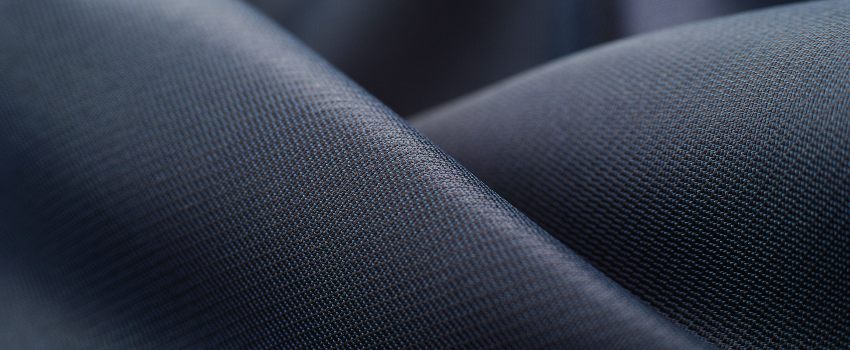
Is Nylon Suitable For Summer
To find out whether nylon is suitable for summer, we have first to understand the properties of the best summer fabric. Thereafter we can consider the properties of nylon fabric and make an informed conclusion on whether nylon is good for summer.
Properties Of A Good Summer Fabric
The summer season is mainly associated with hot or warm weather. Thus, the clothes that one used to wear during winter and spring might not be ideal for summer since summer clothes need to have the ability to keep your body cool even when the temperatures are very high.
Here are the properties of good summer fabrics:
Good Breathability
Breathability entails a fabric allowing water vapor to go through and prevent water entry. In other words, breathable fabric will make it possible for air to easily pass through it so that your body will be cool at all times.
Summer fabrics need to be breathable since when breathable, the fabric ensures that one does not overheat or cool too fast when they are breathable. Indeed, the breathable fabrics boost the body’s natural thermo-regulation allowing air to circulate freely and thus keeping the body fresh.
As a synthetic fabric made from plastics, nylon is not a breathable fabric. Indeed, even if modern-day nylon fabrics are somehow breathable as the nylon threads making the nylon fabrics are loosely woven, the breathability offered by nylon cannot be compared with the breathability of other natural fabrics such as cotton and wool.
However, when blended with other fabrics, the nylon blend can make a breathable fabric and thus make a good summer fabric. Nevertheless, 100% nylon has poor breathability.
Moisture-Wicking Ability
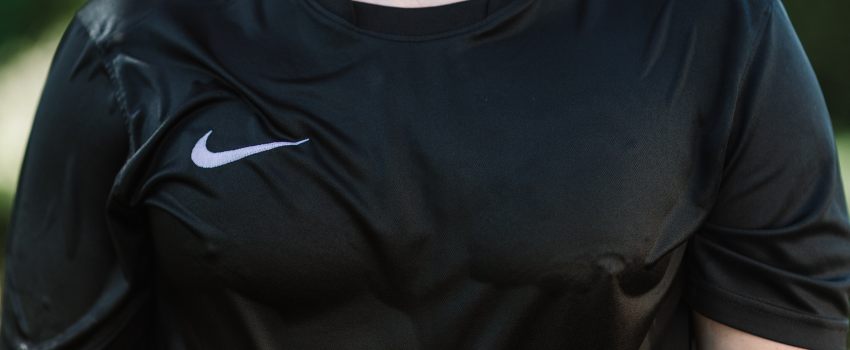
Moisture-wicking ability entails a fabric being able to move moisture from the skin while also ensuring that the fabric itself does not absorb the moisture.
This property is very important in a summer fabric since it ensures that even when one sweats, the sweat will be quickly moved from the skin and the fabric and keep the person dry and comfortable.
Nylon has excellent moisture-wicking abilities since the fabric can wick sweat away from the skin through its fibers to the outer layer. Once the sweat is in the outer layer, it will quickly dry out. Indeed, nylon’s superb moisture-wicking ability is why nylon is blended with other fabrics used to make sportswear.
Lightweight
Lightweight fabrics tend to be light in weight and have excellent air permeability. Any fabric is a conductor of heat. Thus, people wearing lightweight fabrics during the summer are likely to sweat less.
Thus, a summer fabric needs to be lightweight since wearing clothing made from a lightweight fabric is almost similar to wearing clothing with an air conditioner. Summer clothing made from lightweight fabrics allows one to stay cool and dry throughout the day.
Nylon is a lightweight synthetic material. Indeed, nylon’s lightweight feature gives the fabric a softer and smoother feeling, similar to silk. Thus, if a summer fabric was chosen due to its lightweight property, nylon would be considered ideal for summer.
100% nylon is not suitable for summer, mainly due to the poor breathability of the nylon fabric. However, when nylon is blended with other breathable fabrics such as cotton, it is suitable for summer since its lightweight, and moisture-wicking properties are perfect for summer clothing.
Is Nylon Suitable For Hot Weather?
Depending on the structure of nylon fabrics, some nylon can be excellent while others can be hot during summer. For that reason, you find people have different views on whether nylon is suitable for hot weather.
According to some people, nylon should never be worn during summer. These views are supported by the fact that some nylon fabrics (those with tightly woven threads) trap heat against the skin and make one uncomfortable.
If you at any time felt that your nylon shirt was heating up during summer as you walked around, the chances are that your 100% nylon shirt was made from a nylon fabric with tightly woven threads.
Other people swear that polyester is the ideal fabric for hot weather since they find it lightweight, moisture-wicking, and breathable. Indeed, nylon fabric’s impressive moisture-wicking property offers excellent cooling that a few materials can match.
If you were to ask people to recommend the best summer fabric, most people would recommend natural fabrics such as cotton or silk since they believe that these fabrics offer their skins the best feeling during hot days.
Nevertheless, natural fabrics like cotton have poor moisture-wicking abilities than synthetic fabrics such as nylon.
For instance, when cotton permits air to flow through its thread freely, it absorbs any moisture they come into contact with instead of repelling it. Therefore, when you sweat wearing a cotton shirt, you will notice that you will remain wet for an extended period.
In the case of nylon, it does not allow air to go through the threads even though when the nylon threads are loosely woven; the ensuing nylon fabric can allow air to pass through it.
When nylon fibers contact sweat, they do not absorb the sweat. Instead, the sweat goes through the fibers and gets to the outer layer, where it quickly dries out. Thus, as far as moisture-wicking, which is very important for hot weather, is concerned, nylon is better than cotton.
When nylon threads on a nylon fabric are loosely woven to give nylon better breathability, nylon is suitable for hot weather. Moreover, the perfect fabric for hot weather would be a nylon blend where nylon is blended with a natural fabric with high breathability. The nylon blend fabric will be breathable, moisture-wicking, and lightweight, necessary for a perfect hot weather fabric.
Does Nylon Make You Sweat?

When your body sweats, it cools down since the nervous system triggers the sweat glands when the temperature rises, resulting in sweating.
The fabric used to make the clothes you wear can thus make you sweat. Specifically, if your garment’s fabric is not breathable, there will be poor air circulation on your skin, and the materials can make you sweat.
100% nylon of a weave that is tightly woven will not allow good air circulation to your skin. Moreover, the fabric will trap the heat and hold it to your skin. As the heat builds up, your body will overheat, making you sweat. Thus, nylon can make you sweat.
To ensure that you do not sweat when wearing nylon, you should buy a nylon cotton blend or another blend of nylon where nylon is blended with a breathable fabric. The same is also the case for your bedding. If you want nylon bedding and don’t want to sweat, you should buy nylon cotton bedding.
Even if some nylon fabrics that have been made from loosely woven nylon threads are considered to be breathable, you should avoid 100% nylon garments during the hot season. Unless you have a nylon blend, 100% nylon clothing should be avoided during hotter days.
Does Nylon Show Sweat Stains?
Different factors determine whether the garment you are wearing will show sweat stains. For example, the color of the garment and the intensity of sweating are two factors that will determine whether your nylon garment will show sweat stains.
Stretchy nylon will not show sweat stains, while a tight-fitting nylon garment might show stains. Moreover, a dark-colored nylon fabric will not show the stains, while light-colored fabrics will show the stains.
Due to the high stain resistance property of nylon, you should be able to clean up your sweat-stained nylon garment in the washer easily. Alternatively, you can also handwash your stained nylon garment with dish soap and effectively remove the stain.
Does Nylon Absorb Sweat?
A moisture-absorbent fabric has its fibers structured in a manner that they absorb and capture the sweat. Cotton is one of the natural fabrics whose fibers absorb sweat, while viscose is a synthetic fabric that absorbs sweat.
Nylon does not absorb sweat. The fabric is made from plastic, and the poor absorbency property of plastic implies that nylon cannot absorb sweat.
Indeed, instead of absorbing sweat, nylon repels it. This means that when the fabric comes into contact with sweat, the sweat will be allowed to pass through the nylon threads to the outer layer so that it quickly dries up. However, if you sweat profusely and the nylon fibers cannot repel the sweat at speed you are sweating, the sweat will build up and become uncomfortable.
If you buy 100% nylon clothing, be prepared that the poor breathability of the fabric implies that you might sweat.
Is Nylon Sweat Proof?
A sweat-proof fabric is a fabric that does not absorb sweat. Instead, the fabric repels the sweat. Thus, since nylon repels sweat instead of absorbing it, the fabric can be said to be sweat-proof.
However, if, according to you, a sweat-proof fabric is a fabric that ensures that you don’t sweat, then nylon cannot be considered to be sweat-proof. Indeed, 100% nylon that is not blended with a breathable fabric can be hot to wear and make you sweat.
If you are going out and you believe you will sweat (say you are going for a morning jog), consider wearing a nylon blend. The quick-drying and water-resistant properties of nylon make it an excellent choice for activewear.
Is Nylon Breathable For Babies?
100% nylon is not breathable and should never be used in a baby’s summer wear. Even if some might argue that nylon can be woven so that it is breathable, the reality is that the breathability of 100% nylon fabric is very poor.
If you want breathable nylon baby clothing, you should look for clothes made with nylon cotton blends. Likewise, if you want your baby’s bedding to have nylon due to its soft feel and comfort, you should consider beddings made from nylon and cotton blends.
However, considering that nylon is a synthetic fabric made from different chemicals, you should not use the fabric on your baby’s clothing or beddings. There are other many fabrics with similar properties like nylon and are a better substitute for nylon.
Can Nylon Cause Night Sweats?
Night sweats are regular episodes of heavy swearing during sleep. The sweating is quite heavy to the extent that one can wake up thoroughly soaked in sweat.
Usually, night sweats occur when blood vessels enlarge, resulting in increased blood flow followed by the vessels contracting. That process results in a sudden wave of heat that progresses to the entire body, causing sweating.
As a synthetic fabric, nylon can cause night sweat. Specifically, when heat is trapped on your skin by the nylon clothing or nylon beddings, you will eventually end up overheating, resulting in heavy sweating. To avoid night sweats caused by your choice of bedding, avoid 100% nylon beddings.
Conclusions
Nylon was invented as a substitute for silk. However, even if the fabric offers a cheaper version of silk, it has pros and cons. To capitalize on the strengths of the nylon fabric while at the same time ensuring that the cons are addressed, nylon is blended with other fabrics.
Thus, while 100% nylon clothing might not be the best for summer, a nylon cotton blend is one of the best summer fabrics.
If you are considering buying nylon underwear, you should read this article which discussed nylon underwear.


